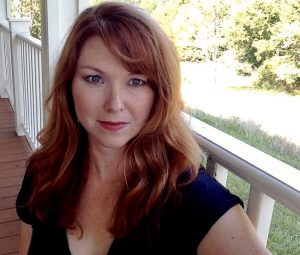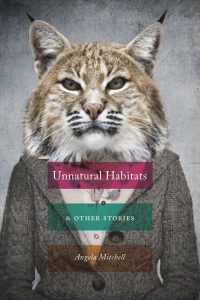What Do We Really Want?
 I hate writing.
I hate writing.
That isn’t true. Not exactly. There are loads things I love about writing fiction, like exploring characters, dreaming up of the next plot point (even if plot and I are never best friends), discovering in a story (and myself) something I didn’t know I would. I especially love rewriting, when the hard labor of that first rough draft is behind me and what’s left is the trimming and sorting and filling in the blanks.
That stage of the process feels the most satisfying and natural to me as a writer, but I’d be a liar if I said it was enough. I’ve known writers who claim the next step, publication, doesn’t matter to them; they write for the pleasure of it, not for recognition. But that’s a concept I don’t get—writing to write—because, for me, the most significant experience of the art and craft of what we do takes place as a conversation between writer and reader. It’s simple: no reader, no conversation. And if there’s no conversation, then whatever I’ve managed to wrangle onto the page, no matter how clever or sharp or meaningful, may as well not exist at all.
This is to say that, obviously, publishing is important to me, which might be the root of my present malaise. Last year, my debut story collection, UNNATURAL HABITATS & OTHER STORIES (WTAW Press), was published by a small press. I’d worked on a novel for ages (and ages and ages), but the collection was my true love, and after several misfires, I found the combination of stories and themes that caught a publisher’s attention. Like most small press books, it hasn’t set the world on fire in terms of sales, but it has managed to garner enough positive attention to make me proud to have it out in the world.
The manuscript I labored over for so long is now a book, one with a beautiful cover and blurbs on the back from writers I admire and, at last, my mother can show that what I do is real, just by pulling it up on Amazon. All of this is good fortune, all of it the realization of my oldest, best dream. And yet, I’m not happy.
And here’s the question: What do I really want?
I ask a version of this question throughout my writing process. What do my characters most want? What do I want as I tell their story? Want is at the heart of everything. It’s the source of life in fiction because, well, it’s the source of life in life. Want makes the world go round. It starts wars and begins (and ends) love affairs and leads to every invention known to humanity. Pick up any ancient text and what constant remains in this world? Want. Lots of it.
In this post-first-book year, what I want is the question that haunts me. Wasn’t publication the answer to my greatest desire? Wasn’t that supposed to bring me happiness and satisfaction as an artist? Wasn’t that supposed to be the thing that made me feel, finally, like a real writer. Like so any women writers I know, I suffer from impostor syndrome and I struggle to say with any
conviction that, yes, I am a writer, maybe even a good one. I thought that having tangible proof of my life as a writer would cure this doubt, but as I am in so many things, I was wrong.
So what do I do now? After twisting and turning for a year, I’ve come to a singular resolution: move forward. My new daily routine includes writing, even if just a few words, before heading on to the next task. This was how I started my life in writing and it’s the best method for getting me back in the groove. No waiting for inspiration, no waiting for the smoke to clear, but putting one foot in front of the other, one word after word after word on the screen in front of me.
Not everything is brilliant (okay, an awful lot of it isn’t brilliant), but it’s there, and it’s real. Rather than thinking about all that hasn’t happened for the book or all the words I haven’t written, I remind myself of a few things I’ve heard when attending book clubs that have been kind enough read UNNATURAL. Very often, other women there will ask with wonder, “How did you write a book? How did you make that happen when you were doing so many other things?”
I wrote when my sons were babies and when they were preschoolers and when they went to school. I wrote when I had volunteer obligations and a house to maintain and groceries to buy and all the other tasks of adulthood just kept on coming. I wrote when maybe I shouldn’t have, tucking it in around the edges of life because I felt I had to. And if that right there doesn’t make me a real writer, what exactly does?
What do I really want? To just keep writing, to be free to explore, succeed and fail and, yes, publish. But affirmation of my legitimacy as a writer isn’t going to come from somewhere else. Real writers know that, including me. So let the conversation continue. That’s what I really want.
—
Angela Mitchell is the author of the story collection, Unnatural Habitats & Other Stories (WTAW Press, 2018). Her work has appeared in Colorado Review, New South, Carve, Midwestern Gothic, storySouth and other journals; it has also been featured in The Best Small Fictions 2018 (Braddock Avenue Books). A past Tennessee Williams Scholar at the Sewanee Writers’ Conference, Mitchell has directed a community writing workshop and served as an associate editor for december magazine. An eighth generation native of the Ozarks of southern Missouri, she now lives in St. Louis with her family. www.angela-mitchell.com
Twitter: amitchellSTL
Instagram amitchellstl
 This collection of seven connected stories set in the Ozarks explores the relationships between people and place and the changing culture of rural America.
This collection of seven connected stories set in the Ozarks explores the relationships between people and place and the changing culture of rural America.
From a newly divorced woman employed by a front for illegal drugs, to a man who seeks revenge when the farm he loves is invaded by meth producers, to a shady Arkansas businessman wrestling with his own wildness (and that of his teen son) as he attempts to return a domesticated bobcat to its native habitat, the characters in UNNATURAL HABITATS AND OTHER STORIES explore the conflict between what is instinct and what is learned, as well as what it means to belong to a place and to a people.
Set in the rural landscape of the Ozarks of Arkansas and Missouri, the stories turn on a growing crime culture in a place that had previously felt untouched by the world outside, forcing characters who live there to reevaluate their sense of right and wrong.
“Don’t start any of the stories in UNNATURAL HABITATS if you’re in a hurry, because once you’ve read that first sentence, you will be hooked and unable to do anything else until you get to the end. This is an exciting debut by a young writer with loads of talent and plenty of heart. Highly recommended.”–Steve Yarbrough
Category: On Writing
























Comments (1)
Trackback URL | Comments RSS Feed
Sites That Link to this Post